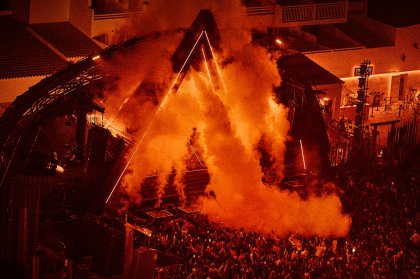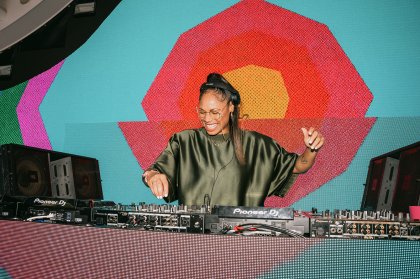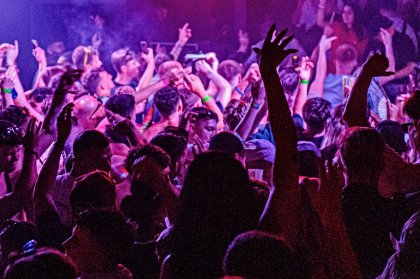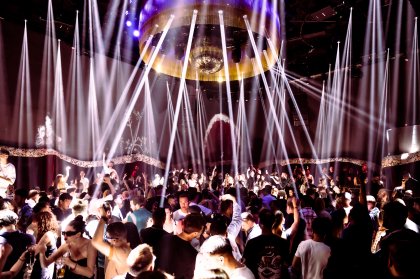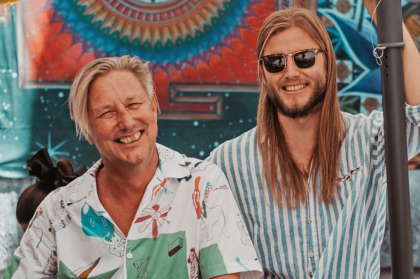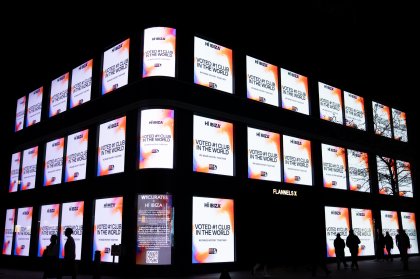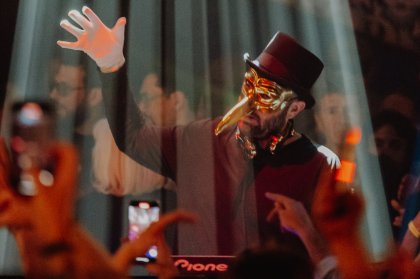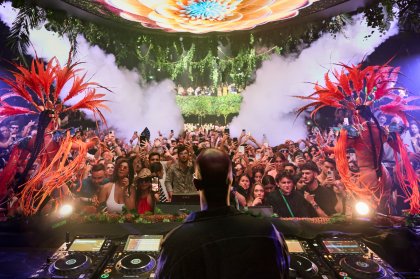1. Having the right equipment - The number of people who own a digital SLR camera these days is massive, and growing! Just like how everyone you meet these days is a DJ or producer, the technology and equipment is so much more affordable and accessible than it ever has been, which is great news if you are starting out…
To be honest, you don't really need that much. A good place to start would be an entry level DSLR with either Canon or Nikon (they more or less do the same). Then from there it's about getting yourself a relatively decent lens that can handle working in the low-light environment of a club. This will really make the difference. The 3 most important adjustments to make with your camera are shutter speed, ISO and aperture (see section below), so you need a lens that can handle fast apertures of f2.8 and better (the lower the number the faster the aperture and the better the photos will be in low light). The kit lens you get with a Canon entry level DSLR has a aperture of f3.5 at it's best.

As a reference, the equipment I own includes a Canon 5D mk II camera body, a Sigma 20mm f1.8 lens, a Canon 50mm f1.8 lens, a cheap Tamron 70-300mm lens, a Canon 580ex mk II flashgun, a Canon ST-E2 Speedlite Flash Transmitter, and various other little bits and pieces. Realistically that's a bargain basement set of equipment aside from the camera body.
2. Network, network, network – I'm 25 now, and I've been doing event photography since I was say 18 or 19 in one way or another. Due to the high number of people who have a camera decent enough to start out with event photography, you need to be able to promote yourself, or rather sell yourself. Why should they use you and not somebody else? Like any other job you have to give the person a reason to choose you over everyone else.
A great way to do this is networking. Go out, meet people who run clubs or gigs and get talking to them. Become their friends or simply just make them aware of what you do and how eager you are to get your foot in the door. Admittedly, they may take advantage of your willingness to get started (see ‘be prepared to work for free section'!), but if you persevere all will be well in the end.

So, when you get to a club or a gig and get talking to the promoter, DJ, band, club manager etc just ask them if they ever need anyone to get some photography done for them, you're their go to person. Be friendly, kind and helpful and you will be on your way.
Aside from that, push your work about. Set up a website, or even a free Facebook fan page which is a great way to share your work. Link photos you take to relevant pages and people and they will have a look. It may take time, but it will be worth it.
3. Practice, a lot – Creativity is the key. When I started out I had no clue about the technicalities of photography, and to a degree I still have a very basic level of understanding compared to some. What does changing the ISO, aperture, and shutter speed do? Well for some part it really doesn't matter too much at the beginning…
Get your camera, no matter how good or bad it is, and just start taking photos. It's all about taking your camera with you wherever you go, on nights out, to gigs, to clubs, on days out and so on. All of this will help you hone your skills into realising just what works and what doesn't. Once you have the framing of photos figured out, you can start to play around with the settings, until eventually you move on to the dreaded fully Manual mode on your camera. At this point you have full control over all the settings of the camera, and here you can really let your creative juices loose.
With regard to editing; don't overdo it. Your photography should represent what the moment looked like there and then. So don't start messing about with it too much in Photoshop because the image loses credibility and realism. Ideally you shouldn't need to do much editing at all, so keep it simple.

4. Be prepared to work for free – I talked about people taking advantage (and I don't mean this in a overly negative way...) of your willingness to get a foot in the door. And on a very basic level promoters and the like are. But they undoubtedly get so many people offering to take photos for them, so offer to do the photos for them for free initially.
You should expect as a minimum to get yourself in the club for free as a result, maybe even a few drinks as a little thank you. The more you cover an event the more you will get to know the people who work there and the more you will find yourself benefiting.
There are many great ways to get started if you have found contacting people directly difficult or impossible. There's loads of great nightlife/event websites out there (Tilllate.com, Don't Stay In etc) who are always looking for young and eager people to join their teams. Get in touch with them, it is where I started and I loved it. They offer you an opportunity to gain access to some amazing clubs, gigs, and festivals around the country and beyond with very little experience. And where better to practice than at your favourite events?

It's more than likely you won't get paid or maybe a small amount, but if you want to make it at the start you will be expected to do it because you love it, not because you want to earn thousands of pounds from the off (which would be nice, obv).
5. Be different, but take notes – There are loads and loads of photographers out there, as you know by now, some good, some bad. A great way to make it as an event photographer is to develop your own style.
Don't simply just copy everyone else's work, but on the other hand everyone learns through research too. So find out who the great event photographers are wherever you are and start looking at their work. Try and figure out how they got that shot, where they stand to get that view, what equipment they used, how they edited their shots and so on. But remember everyone has their own taste, a style of photography that may be loved by some people, others may find rubbish.

Above all though, you will learn to develop your confidence, which will help you be more adventurous with your photography. With this you can start to have more fun with it, and crucially if it becomes a chore for you and you aren't having fun then it will lose its appeal. You will need a lot of energy; while everyone else is going out and getting on it, you'll be working, and then up the next day editing your shots. So, be prepared to put the groundwork in and as a job it can really pay off.
Have a look at some of the Photo Reviews on the Ibiza Spotlight webste.
